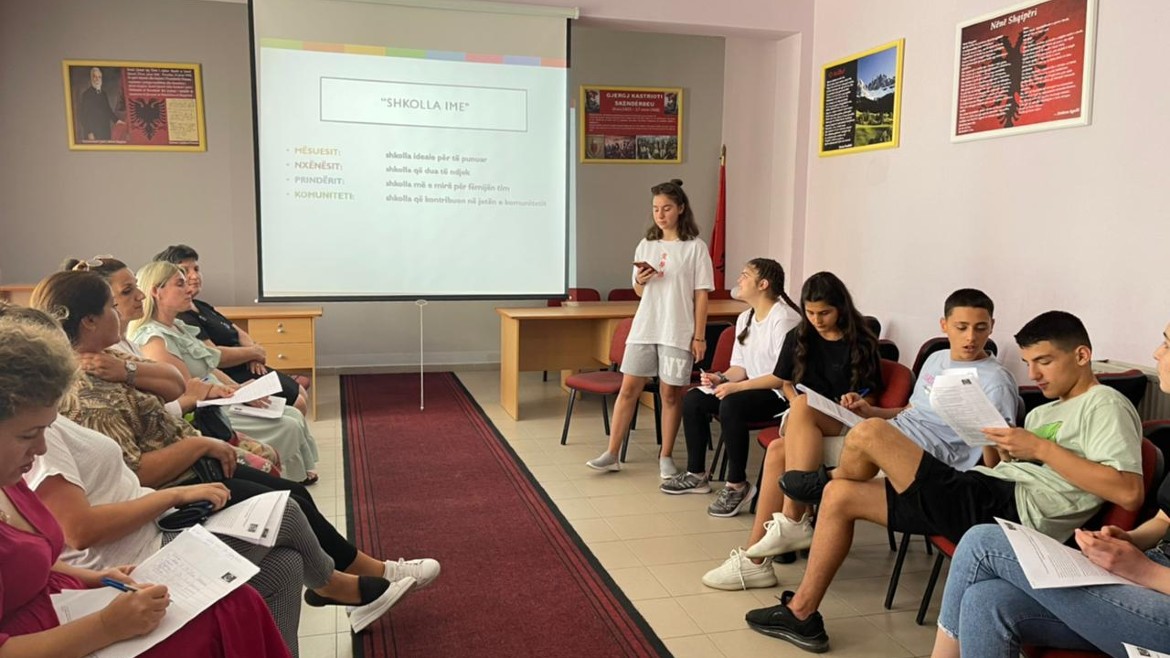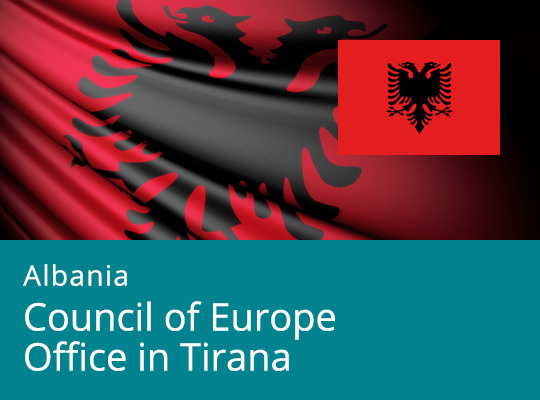Schools provide ideal environments for children and young adults to gain hands-on experience in practicing democracy and human rights. Genuine participation in electing representatives for school decision-making bodies and participating in such bodies provides them with unique opportunities to learn, develop and practice competences for democratic culture.
A recent survey carried out in the framework of a Council of Europe project “Strengthening Democratic Citizenship Education in Albania”, funded by Sida*, sheds light on inclusive and democratic policies and practices in Albanian schools. Further to activities implemented, the project’s 25 pilot schools, 842 teachers and 1926 students provided their feedback in response to tailor-made questionnaires. This confirmed not only their true engagement with the project but also highlighted an strong interest towards making their own schools more democratic.
The organisation, rights and responsibilities as well as student involvement in decision-making processes are addressed in the Albanian legislation and, thus, student government is a part of the education governing system, alongside the institutions and bodies operating at central and local level, such as the Ministry of Education, Sport and Youth, National Council on Pre-University Education, local education units, local councils on pre-university education, education institution board and teachers’ council.
The survey revealed that there is a positive perception of teachers and students regarding the role and involvement of students in decision-making bodies and subsequently the well-functioning of the school. However, the survey also revealed that more needs to be done to improve the capacity of student governments to properly fulfil their mission and tasks and to involve more extensively students outside of it. Teachers and students recognised the impact of COVID-19 pandemic on its functioning and strongly suggested that the student governments should organise more extra-curricular activities.
Based on these results, the project team will fine-tune its intervention to ensure furthering its action and advice to better comply with Council of Europe best practices, particularly, with the Reference Framework of Competences for Democratic Culture, in order to continue to strengthen democratic citizenship education in Albania.
The project “Strengthening Democratic Citizenship Education in Albania” is implemented by the Council of Europe and funded by the Swedish International Development Cooperation Agency.




